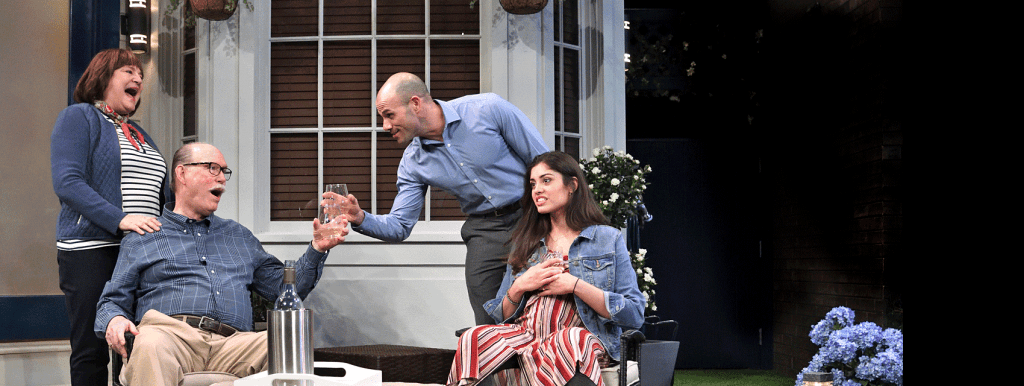The following is a lightly-edited transcript of a conversation between Becky Nurse of Salem director Curt Columbus and The Good John Proctor director Kimberly Senior.
Chapter 1: Summer of Steppenwolf
Kimberly Senior: I was here in New England at Connecticut College, which was a wonderful education and social experience, but did nothing for me in terms of career prep. My parents were anxious about what I’d do after college, so my mom suggested an internship at Steppenwolf Theatre Company in Chicago. I grew up in New York going to theater, so I was aware of it, but had never been [to Steppenwolf].
I arrived on my first day at Steppenwolf. I was “hired” by the director of development who took the summer off so I had no point of contact.
So I just walked in the building and looked around to see who needed help. Because dammit, I was going to be an intern.
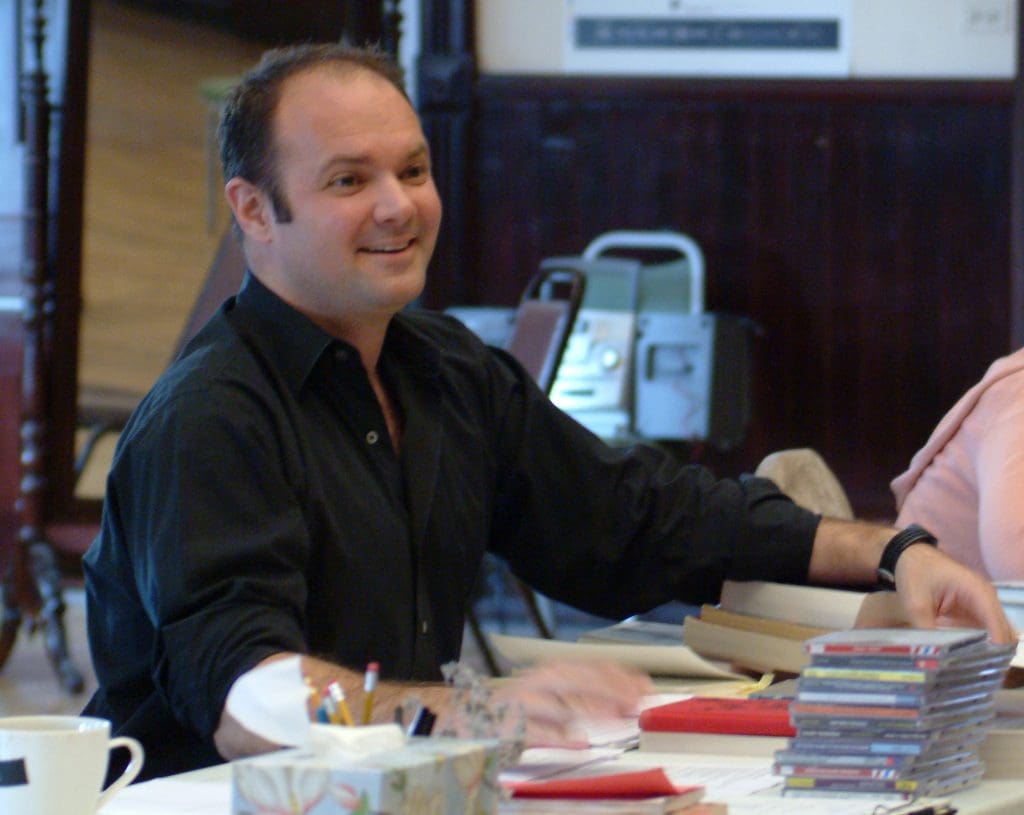
It was here that I bumped into Curt and a wonderful actor named Mary Ann Thebus. Within moments of talking to them, they were like “Can you fold these programs? Can you do some administrative tasks that we’re behind on? There’s a high school program that we teach high school students. We don’t have enough people; can you go herd the kids?” I just jumped into being their intern.
Curt Columbus: The artistic director at the time had asked Mary Ann and I to teach the high school program on very short notice. It was like Trinity Rep’s YASI [summer program] if no prep work was done beforehand. Kimberly showed up and jumped right into it. She was energetic. She was funny. She was great with the kids.
KS: Curt and I took all of our breaks together and that’s where our true conversation really began. One time Curt said, “I’m working on this translation of one of [Anton] Chekhov’s plays.” And I said “Ugh, I hate Chekhov!” That led to an amazing conversation about our work. Ironically, I ended up directing his translations of Chekhov’s Three Sisters, Uncle Vanya, and Cherry Orchard years later!
I had only planned to be in Chicago for the internship, expecting to return to the promised land of New York City where I had a job lined up as an assistant to an assistant at Manhattan Theatre Club. One day, Curt and Mary Ann sat me down and said I shouldn’t go to New York, that I could learn more here. They said that if I wanted to be a director, going to be someone’s assistant would lead me down the assistant path for the rest of my life. It was a total intervention.
Chapter 2: Squeezing the Juice Out of Life
CC: I think what I would want people to know most about us is that I was at Kimberly’s wedding. When she directed Disgraced on Broadway, I sat next to her mother on opening night. We have had this 30-year love affair as artists and friends. We have very similar aesthetics. We’re both unrepentantly naughty. And we both love squeezing the juice out of life.
KS: I love that I can always call Curt for advice, whether I need to solve a moment in a play, break up with a boyfriend, or advocate for myself at work. Our conversations are a huge benefit since we both live wholly in the world. He knew I was approaching my work from a certain way because of who I am as a person, and there is an encouragement to put my whole self into everything I do.
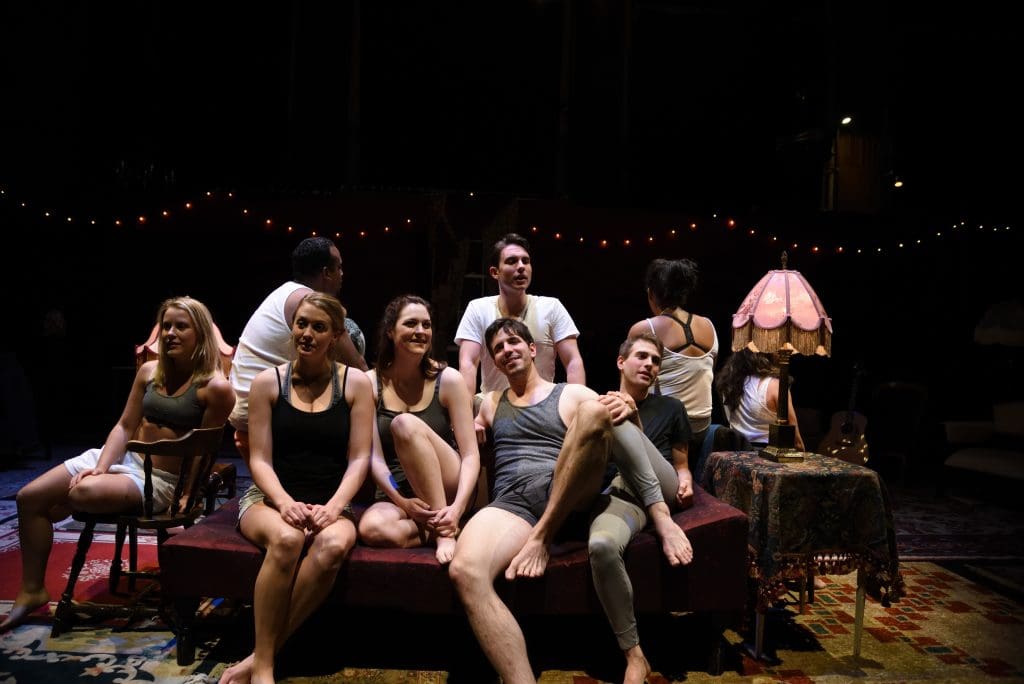
CC: Everything Kimberly is saying is stuff I’d say about her too. She truly inspires me.
KS: I also love what Curt does here at Trinity Rep; that this theater belongs to Providence, and it belongs to Rhode Island. It belongs to the artists and community who live and work here. Originally, I preferred that Curt enlist a company member or an [Brown/Trinity Rep] MFA graduate to direct a show instead of me. Especially for the graduates, since it’s so hard to get your first job out of an MFA program. It provides a bridge for so many artists who trained here.
Chapter 3: Creating in Repertory
CC: Kimberly has also been working back-to-back on so many projects over the years. There were a few times we tried to fit her in [to direct a Trinity Rep production], but it just didn’t work. However, Kimberly is an incredible mentor and teacher. Because of this, she has directed and taught for Brown/Trinity Rep. She’s still in touch with many of the actors and directors who graduated over the last decade.
KS: One reason I wanted to finally direct at Trinity Rep on this play, in rep with Curt’s play, is that Curt is one of the biggest feminists I know. He’s a better feminist than I am! He has created opportunities for so many women in all aspects of the theater. If you look at the powerful people in this organization, many of them are women or have feminine energy – including Curt herself. Doing the plays in this way is a way to continue the conversations we’ve been having for decades. And these plays are in direct conversation with the patriarchy.
CC: At the center of these two plays is a response to the Salem witch trials, and The Crucible by Arthur Miller. The Crucible is considered one of the most canonical plays in the American Theater, and it’s taught in English classes across the country. But it is extremely problematic, and I don’t think that we talk about that enough. Both plays help to make vivid the sexism inherent in The Crucible.
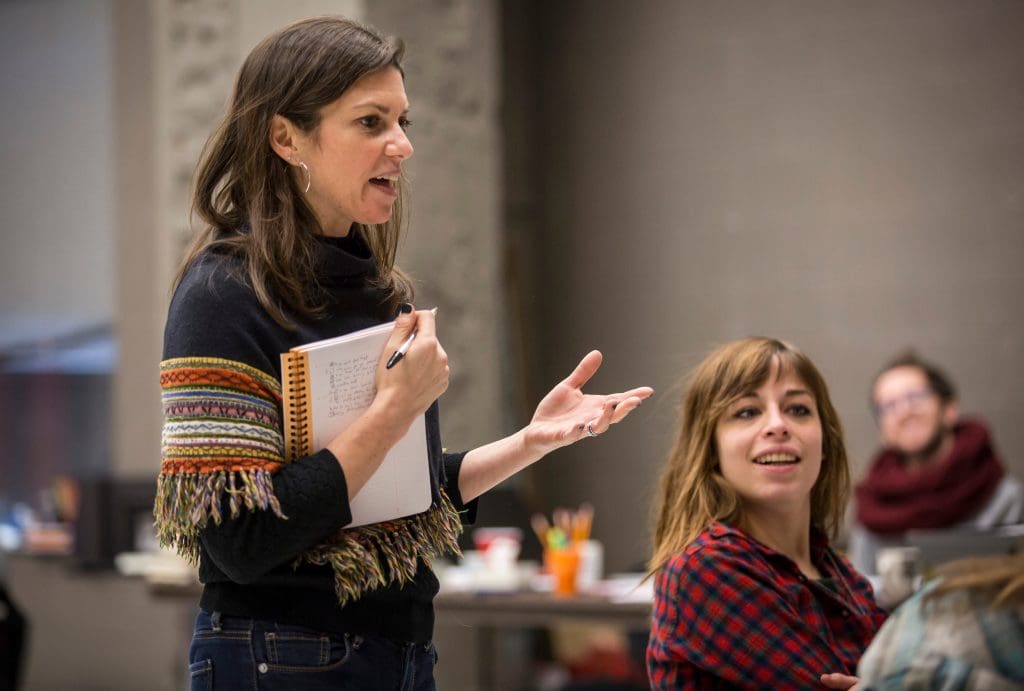
When programming this season, I selected Becky Nurse of Salem first, because I’m a 25-year fan of [playwright] Sarah Ruhl. I produced her plays more than those of any other living playwright while at Trinity Rep. We also held the world premiere of her show melancholy play.
I am in love with Becky Nurse because of what it has to say about who we are now as an American culture.
KS: You sent me this play in 2020 and said, “You have to read this play. It might be Sarah’s best play.”
CC: I love it so much! When we programmed it, I thought “I wish we could do this alongside The Crucible without actually doing The Crucible.”
Enter, The Good John Proctor.
The show centers the story of those four girls in a way that illuminates the story of The Crucible, without judging it. Art is subjective, so for many audience members, The Crucible could be their favorite play, and that’s great. We wanted a play to contrast Becky Nurse that didn’t directly acknowledge Arthur Miller the way Becky Nurse does, instead taking place within that world.
KS: In the world of [playwright] Talene [Monahon]’s play, The Crucible doesn’t exist yet. The events take place before the witch trials, before the events of The Crucible. Because it’s before the Salem witch trials, this play asks; “why do we have rules in place to control the population you feel threatened by?” The Good John Proctor questions why Arthur Miller gets to talk about women’s sexuality, imagination, play, and fear. We see what would happen if we let the girls speak too.
There’s so much in this play about consequences that comes up for me. I was talking with Rachael [Warren] the other day about Betty Parris, who is the youngest character and the least aware of consequences. I said it reminded me of a book called The Scientist in the Crib, that I recommend to every new parent, about kids experimenting with cause and effect to learn what’s “good” and “bad.” Betty is like this little scientist. She’ll think “If I curse, I get 20 lashes. If I tell you, my older, wiser cousin who I worship, about the dream I had, what’s going to happen?” The opening moment of the play is literally a young person questioning. And that’s very relevant today.
CC: It’s fascinating because that’s also one of the things about Becky Nurse that’s really compelling. We all know about the opioid crisis in the United States, and in Becky Nurse, Becky has an addiction problem. But Sarah doesn’t say that because Becky has an addiction, that means she’s a bad person. Instead, she asks, “What if you understand it as the consequence of a life lived?” Becky is a teen mother, her daughter was a teen mother, she’s raising her granddaughter on her own. Surely that’ll have an effect.
Chapter 4: Unfixed Objects
CC: I also love that this play tells us that at the age of 50 – or beyond – you can decide you’re going to live differently. You can change to a different take on life whenever you’re ready.
KS: And going back to our friend Mary Ann: When I was 47, I had some complicated feelings about aging. She asked me how old I was, I told her, and she grabbed my hands, tears in her eyes. “That’s how old I was when I started acting.”
In that moment, I realized my life was only beginning! I can be anyone I want to be at any moment. And that is something structures and rules don’t want you to think.
CC: There’s also this fiction that you are somehow a fixed object. Scientifically, every seven years, all of the cells in your body are replaced. When you’re 21, you are literally three different people from when you are 42.
Structures like patriarchy want you to stay the same. But we don’t, we literally can’t. I turn 59 this year, which is one of those seven-year marks. I will not be the person I was when I turned 50. That’s such an important, profound thing to think about.
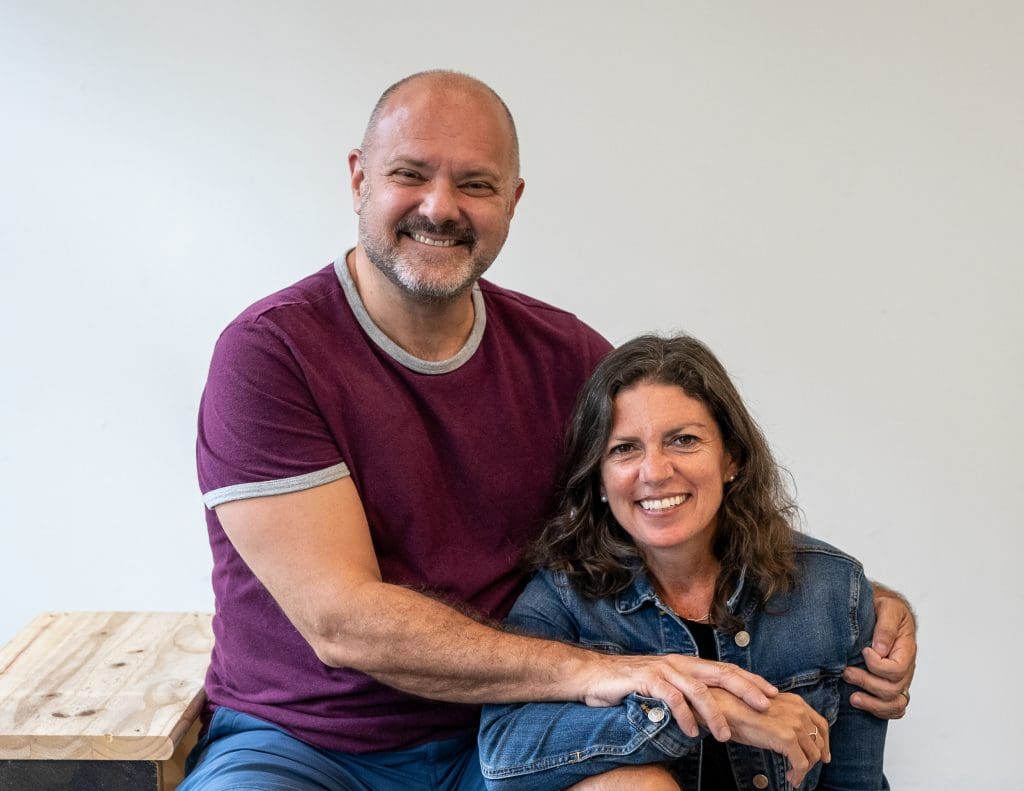
KS: And just to get literal about it, our art is always changing too. The Crucible was written a long time ago, and it is a living document in that our response changes to it. When I first encountered it, I thought it was amazing.
And each show you see is a world premiere every time it plays. I saw Sweeney Todd at Trinity Rep last night. I saw a play that only happened last night. Whatever performance happens tonight is going to be different just because no performances are identical. The actors bring something new and fresh to it every night. So do our plays, even when they are old and revisited nine million times. We can only meet them in the present moment that we’re in.
CC: I think what both of our plays are doing is meeting these topics, in our current moment. We’re living in this frightful time of post-COVID isolation, and with Roe v. Wade overturned where women’s bodies are being controlled. Neither of these things are directly spoken of in the plays, but the essence is present.
We are put into structures that oppress and criminalize women, so sadly, these plays will be relevant until patriarchy ends.
